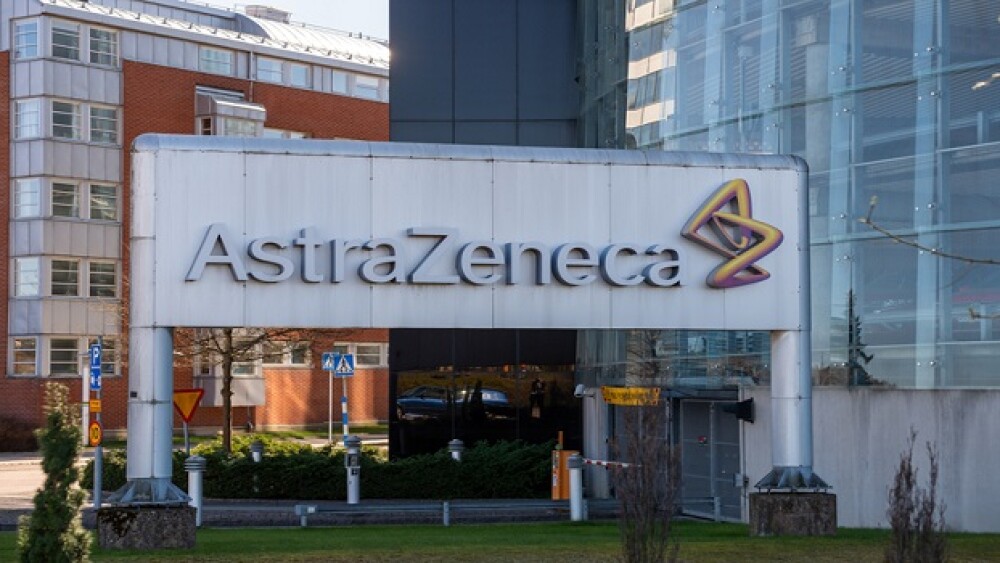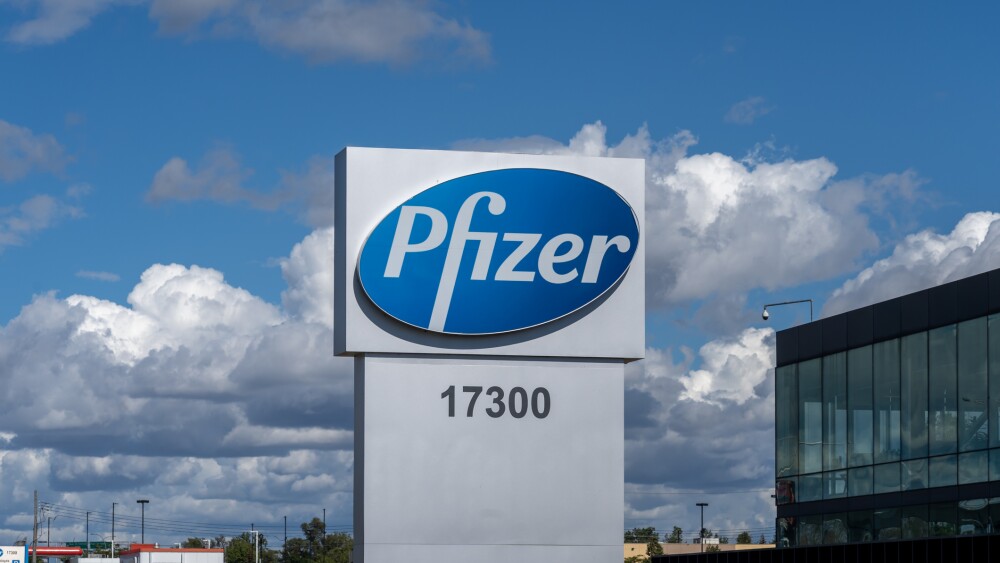SyneuRx™ International, (Taipei Exchange, ticker ID TT6575, www.syneurx.com), today announced that its investigational oral SARS-CoV-2 (COVID-19) anti-viral drug candidate Pentarlandir® has successfully demonstrated effectiveness against both the Omicron and Delta variants of the virus in its preclinical studies.
| LOS ANGELES and NEW TAIPEI CITY, Taiwan, Jan. 6, 2022 /PRNewswire/ -- SyneuRx™ International, (Taipei Exchange, ticker ID TT6575, www.syneurx.com), a pioneering developer of novel CNS (Central Nervous System) and anti-viral pharmaceuticals, today announced that its investigational oral SARS-CoV-2 (COVID-19) anti-viral drug candidate Pentarlandir® has successfully demonstrated effectiveness against both the Omicron and Delta variants of the virus in its preclinical studies. Pentarlandir® is currently in the final stage of a Phase II US-FDA trial (Phase III is scheduled to begin in 2022). Designed as an early-stage COVID-19 treatment, Pentarlandir® is given by mouth to patients suffering either from early-stage ‘breakthrough’ cases of COVID-19 (for those who have been previously vaccinated or infected) or potentially as a first-line treatment pathway for the unvaccinated who might otherwise face potential hospitalization and death. Pentarlandir® is indicated for the majority of COVID-19 patients – people who are in general good health with little risk of progressing to severe COVID-19 (that would result in hospitalization and death). In contrast, the Pfizer drug Paxlovid is designed for those who are at high risk of developing serious COVID-19 complications, (those aged 65 and older, or patients with comorbidities such as diabetes, obesity, heart or respiratory disorders). Given the natural origins of Pentarlandir®‘s active chemical component, costs for the drug are expected to be significantly lower than for Paxlovid. As such, Pentarlandir® will be more accessible and affordable to less wealthy nations and as such represents an ideal solution to addressing the large worldwide population infected with the variant COVID-19 viruses. How do Pentarlandir and its competitor drugs stop COVID-19? The Merck antiviral molnupiravir is considered a polymerase inhibitor, since it targets ribonucleic acid polymerase and inhibits COVID-19 as the RNA polymerase duplicates and introduces fatal errors into viral replication. The drug has a roughly 30% efficacy rate in preventing hospitalizations as demonstrated in early tests and as such is no longer considered a potential first-line treatment. The Pfizer EUA drug Paxlovid combines two protease inhibitors for its viral attack vectors. Ritonavir is an existing drug used to combat HIV, while Nirmatrelvir is the brand name given to the experimental molecule PF-07321332, which was developed to specifically attack the protease of the COVID-19 virus. Protease is an integral enzyme within the virus that is necessary for proper replication. While Nirmatrelvir attacks the protease of COVID-19, ritonavir attacks the enzymes that would take on Nirmatrelvir, with both drugs operating in tandem to slow the replication of the virus. Pentarlandir® is efficacious against COVID-19 and its variants by relying on a dual methodology to stop the virus – first acting as a protease inhibitor like Nirmatrelvir, but also acting as a TMPRSS2 inhibitor which acts to prevent the virus from infecting/entering cells in the first place. Unlike Paxlovid, Pentarlandir® is a single chemical with minimal documented side effects and is purified from natural sources, making it far less expensive to manufacture. SyneuRx and Pentarlandir® Trials: If successfully developed, SyneuRx intends to make Pentarlandir® available to the world’s developing nations as part of the United Nations-backed Medicines Patent Pool. More information about the Pentarlandir® Phase II trial can be found here: www.clinicaltrials.gov/ct2/show/NCT04911777?term=syneurx&draw=2&rank=3 Quotes: “Given the worldwide onslaught of the Omicron variant of COVID-19 plus its ability to substantially evade current vaccines and its proclivity to manifest as a less-lethal endemic virus than its predecessors, the need for an inexpensive and highly-effective oral antiviral has never been greater, regardless of whether the pandemic is transitioning to endemic,” said Dr. Guochuan ‘Emil’ Tsai MD PhD MAS, founder and CEO of SyneuRx. “We are very pleased that Pentarlandir® shows strong effectiveness against Omicron, and our hope is that it will become a drug of choice for home treatment of COVID-19 throughout the world in the future.” About SyneuRx: SyneuRx was founded in 2013 with the goal of using scientific breakthroughs to develop novel CNS drugs for patients suffering from severe mental health disorders, and antiviral therapeutics now. The multi-national team is located in the U.S. and Taiwan. Prior to starting SyneuRx, Dr. Guochuan (Emil) Tsai, MD, PhD was a member of the faculty at Harvard Medical School and is now at the UCLA School of Medicine, Department of Psychiatry and Biobehavioral Sciences. SyneurRx and Pentarlandir® are trademarks and registered trademarks, respectively, of SyneuRx International. All previous trademarks and registered trademarks previously cited are hereby recognized and acknowledged. Disclosure Notice: The information contained in this release is as of January 6, 2022. SyneuRx assumes no obligation to update forward-looking statements contained in this release as the result of new information or future events or developments. This release contains forward-looking information about SyneuRx’s efforts to combat COVID-19 as well as flu and the company’s investigational oral antiviral candidate Pentarlandir® (including qualitative assessments of available data, potential benefits, expectations for clinical trials, advanced purchase agreements, the anticipated timing of data readouts, regulatory submissions, regulatory approvals or authorizations, planned investment and anticipated manufacturing, distribution and supply), involving substantial risks and uncertainties that could cause actual results to differ materially from those expressed or implied by such statements. Risks and uncertainties include, among other things, the uncertainties inherent in research and development, including the ability to meet anticipated clinical endpoints, commencement and/or completion dates for clinical trials, regulatory submission dates, regulatory approval dates and/or launch dates, as well as risks associated with preclinical and clinical data, including the possibility of unfavorable new preclinical, clinical or safety data and further analyses of existing preclinical, clinical or safety data; the ability to produce comparable clinical or other results including efficacy, safety and tolerability profile observed to date, in additional studies or in larger, more diverse populations following commercialization; the risk that preclinical and clinical trial data are subject to differing interpretations and assessments, including during the peer review/publication process, in the scientific community generally, and by regulatory authorities; whether regulatory authorities will be satisfied with the design of and results from these and any future preclinical and clinical studies; whether and when any drug applications or submissions to request emergency use or conditional marketing authorization for any potential indications for Pentarlandir may be filed in any jurisdictions and if obtained, whether or when such emergency use authorization or licenses will expire or terminate; whether and when regulatory authorities in any jurisdictions may approve any such applications for Pentarlandir, which will depend on myriad factors, including making a determination as to whether the product’s benefits outweigh its known risks and determination of the product’s efficacy and, if approved, whether it will be commercially successful; decisions by regulatory authorities impacting labeling or marketing, manufacturing processes, safety and/or other matters that could affect the availability or commercial potential of Pentarlandir, including development of products or therapies by other companies; risks related to the availability of raw materials for Pentarlandir; the risk that we may not be able to create or scale up manufacturing capacity on a timely basis or maintain access to logistics or supply channels commensurate with global demand, which would negatively impact our ability to supply the estimated numbers of courses of Pentarlandir within the projected time periods; whether and when additional purchase agreements will be reached; the risk that demand for any products may be reduced or no longer exist; uncertainties regarding the impact of COVID-19 on SyneuRx’s business, operations and financial results; and competitive developments. For further information, please contact SyneuRx PR Counsel Jonathan Hirshon at jh@horizonpr.com SOURCE SyneuRx International | ||
Company Codes: Gretai:6575 |




